
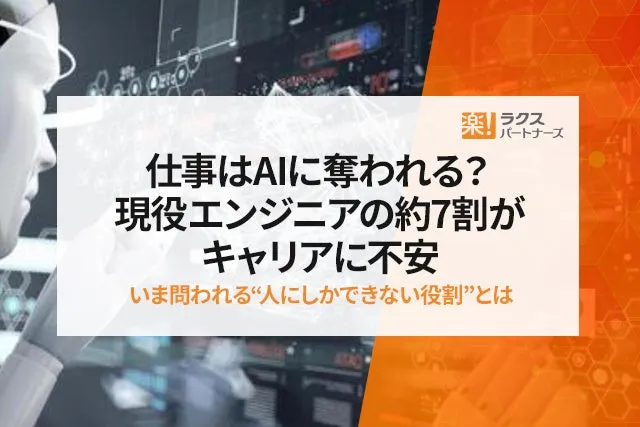
Navigating Career Uncertainties Amidst the Rise of Generative AI for Engineers
The Impact of Generative AI on the Future of IT Engineering
A new survey conducted by Rakus Partners, a firm specializing in IT engineer dispatch, has shed light on the evolving perception of approximately 1,000 IT engineers regarding the rise of generative AI in the workplace. With AI technology becoming more integrated into daily tasks, many engineers are experiencing a mix of opportunities and concerns about their careers.
Survey Insights
The survey results reveal that about 70% of IT engineers utilize generative AI at least once a week, primarily for tasks such as information gathering and document creation. Notably, over 50% of respondents feel that their enjoyment and engagement at work have increased with the introduction of generative AI, suggesting that it enhances their ability to focus on core responsibilities.
However, despite the perceived benefits, nearly 60% of engineers expressed concerns about their career trajectory due to the expanding role of AI. Almost 80% believe that the skills required in the IT industry are changing, emphasizing the importance of judgment, user-centric perspectives, and prompt design capabilities.
The Current Landscape of AI Usage
The frequency of AI utilization is significant, with 73% of respondents indicating they use AI tools at least weekly. The majority employ generative AI for information research, document writing, and code generation. This shows a strong reliance on AI for efficiency and productivity in their daily operations.
However, certain areas, such as debugging and security diagnostics, remain less frequently associated with AI use, primarily due to concerns over accuracy and reliability. This indicates a discernible divide in roles that can be effectively performed by AI versus those requiring human insight and expertise.
Enjoyment and Value in Work
When queried about changes in job satisfaction since the integration of AI tools, responses were notably positive. Approximately 50% of engineers reported that they could now engage more deeply in meaningful work, while 23% mentioned discovering new areas of learning and growth.
Conversely, over 22% noted no significant change, highlighting that personal experiences with AI in the workplace can vary considerably among individuals.
The Human Element in Industry
In discussions regarding tasks unsuitable for automation, team management, requirement definitions, and testing ranked as the top concerns among engineers. The demand for interpersonal skills, nuanced judgment, and ongoing situational awareness underscores the thought that certain aspects of engineering work remain fundamentally human.
Career Anxiety Amid AI Advancement
A substantial portion of the survey participants expressed apprehension about their professional futures in light of generative AI integration. Approximately 63% reported feeling at least some level of anxiety, with over 16% feeling it keenly. Reasons included fears of diminished relevance, the potential for AI to overshadow years of experience, and the evolving nature of workplace demands.
On the other side, some engineers, particularly in management roles, maintain a more optimistic outlook. They view AI as a tool that can enhance creativity and efficiency rather than replace human roles entirely. This dichotomy illustrates a broader trend, where adaptation and re-skilling are becoming crucial.
Evolving Skillsets for Engineers
Emerging from the survey is a clear indication that needed competencies are shifting. More than 85% of engineers believe that skills necessary in the industry will change significantly due to AI. The focus is moving towards the ability to leverage AI correctly, improved judgment, effective communication, and creative problem-solving skills as primary qualifications.
Conclusion: Adapting to an AI-Driven Future
As generative AI continues to integrate into IT roles, the contours of engineering professions are evolving. Engineers must reassess their positions, skill sets, and methodologies for engaging with technology. The confluence of generative AI and engineering presents both challenges and opportunities for growth.
Ultimately, the future is likely to favor those who can adapt and redefine their contributions in ways that leverage AI tools effectively while emphasizing the irreplaceable value of human judgment and creativity. Engineers poised to thrive in this environment will not only harness AI as a resource but will also position themselves as indispensable assets in a technology-driven landscape.
This evolution in thought highlights an important shift towards co-evolving with AI rather than being overshadowed by it, suggesting a promising yet challenging horizon for the engineering workforce.
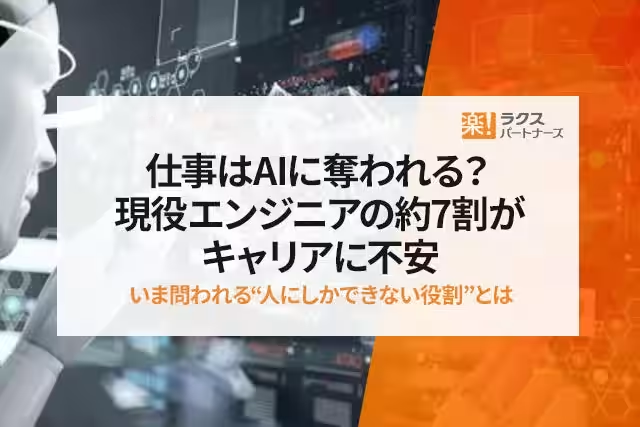
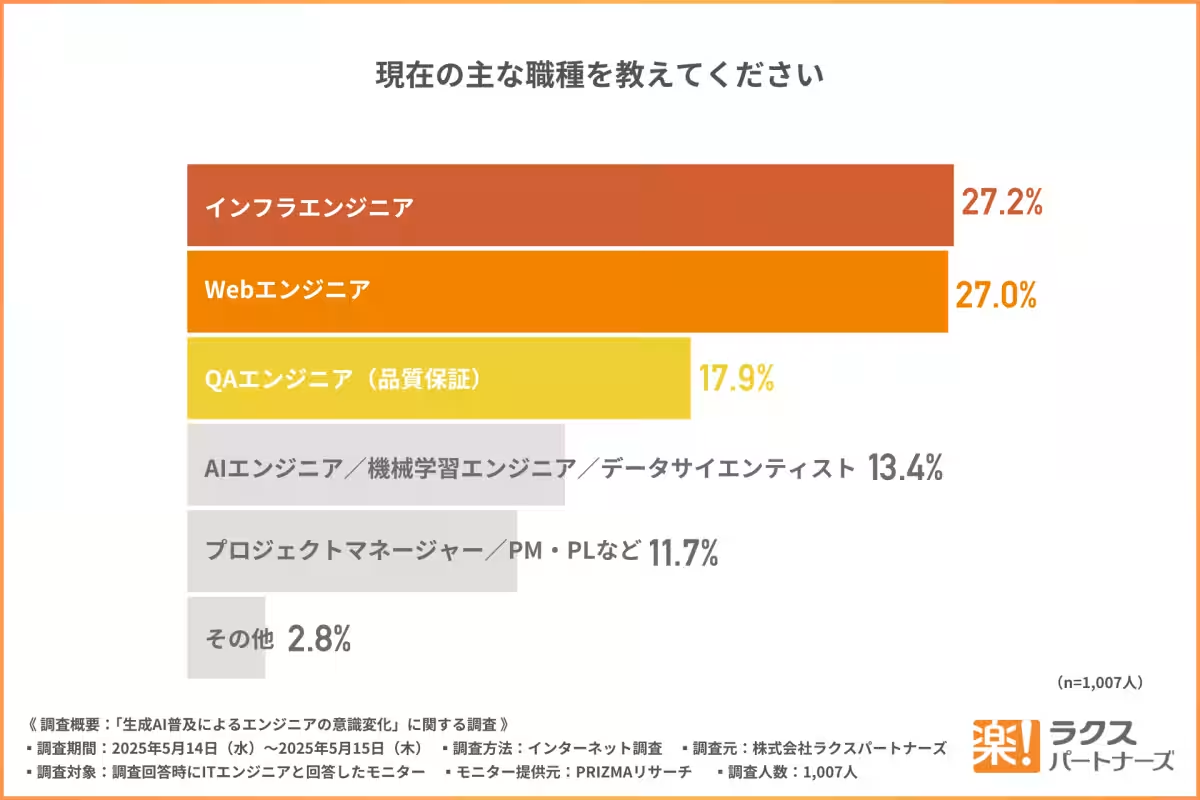
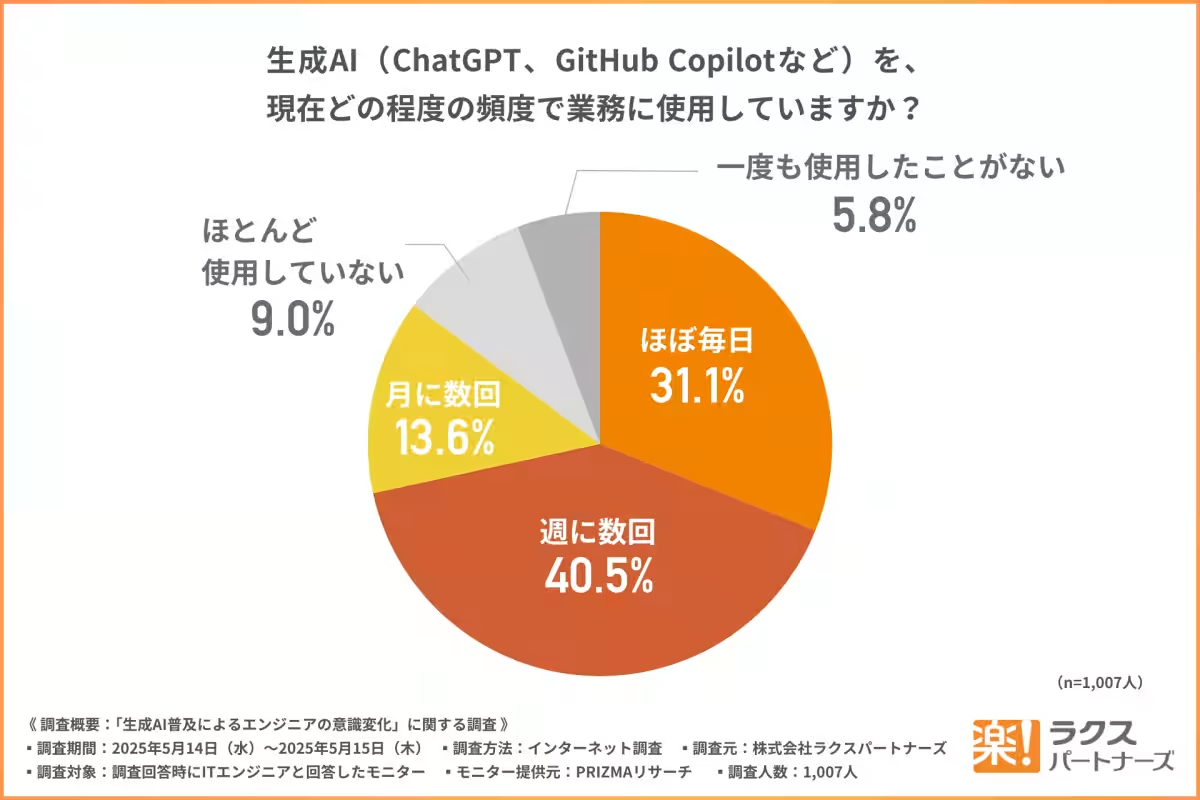
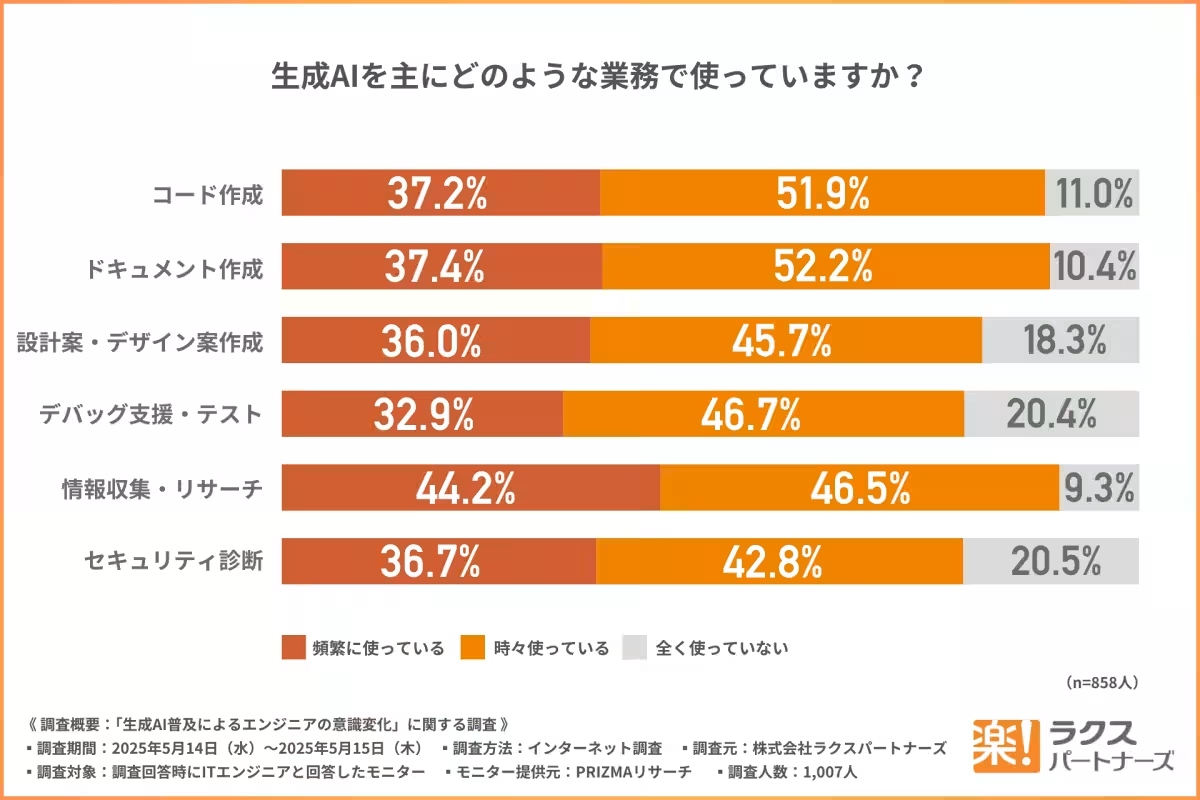
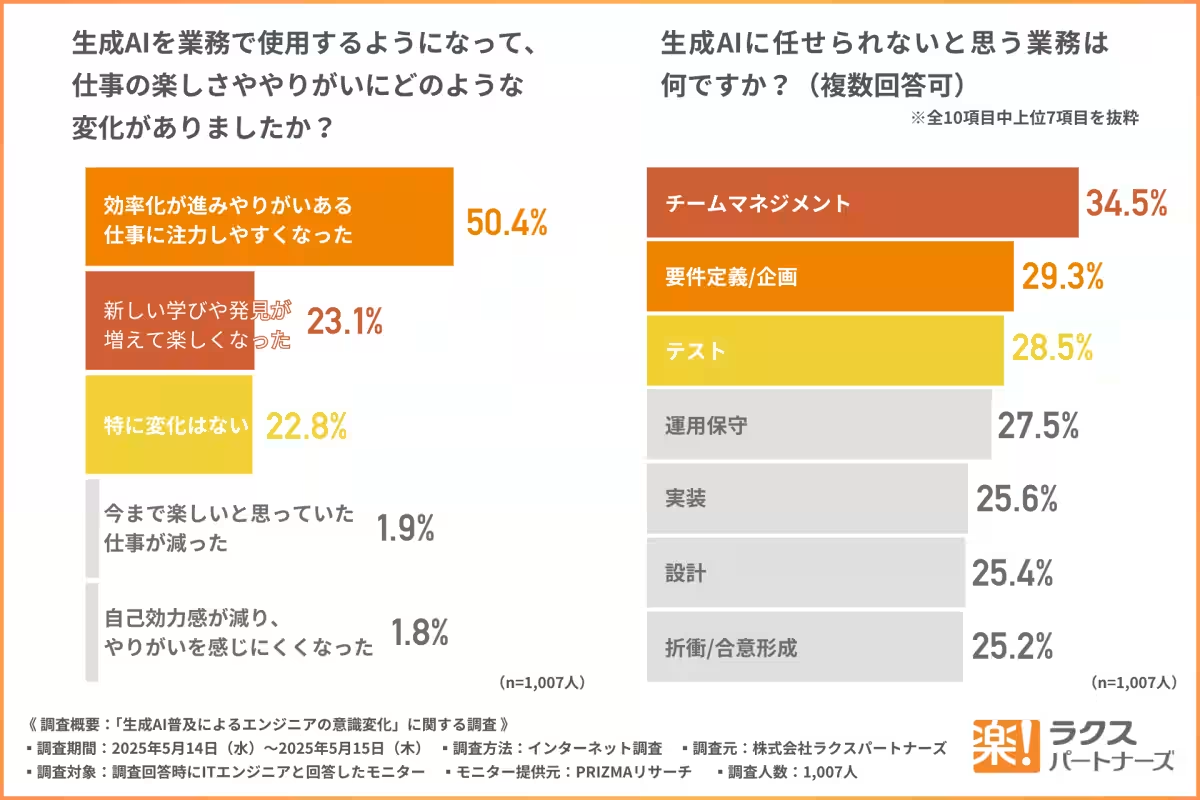
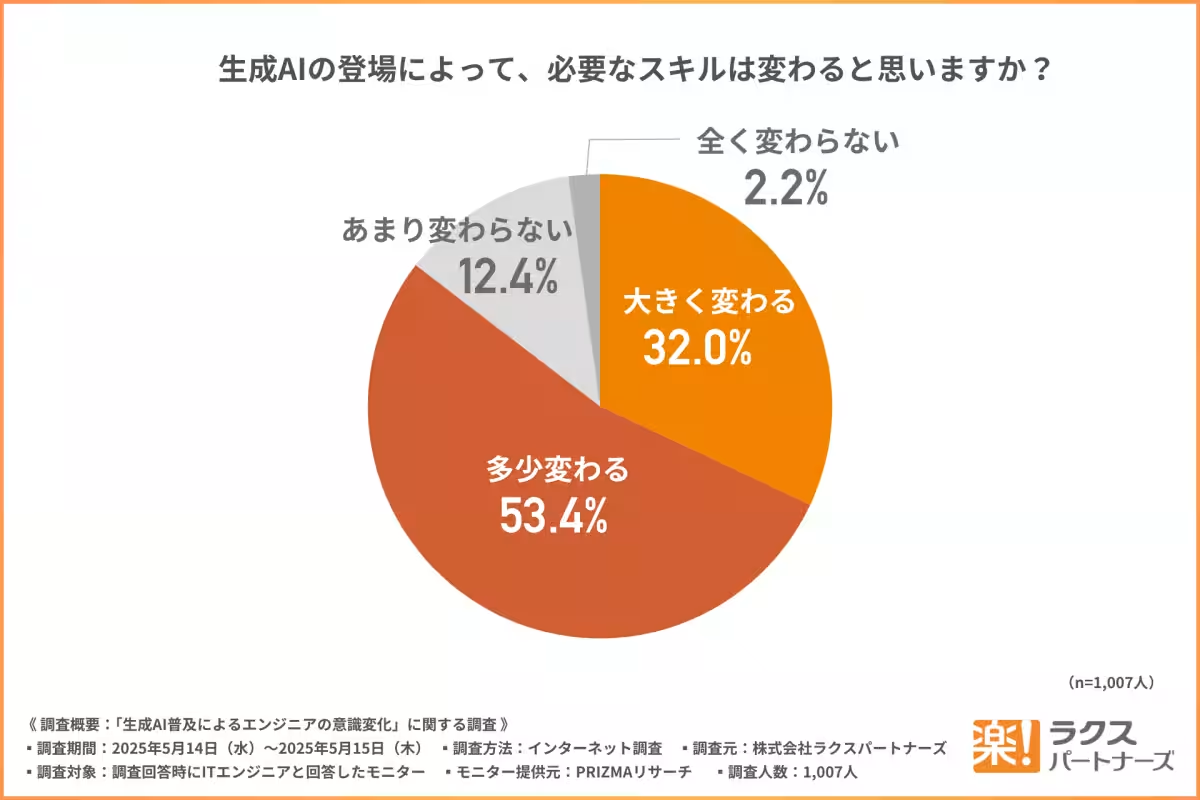
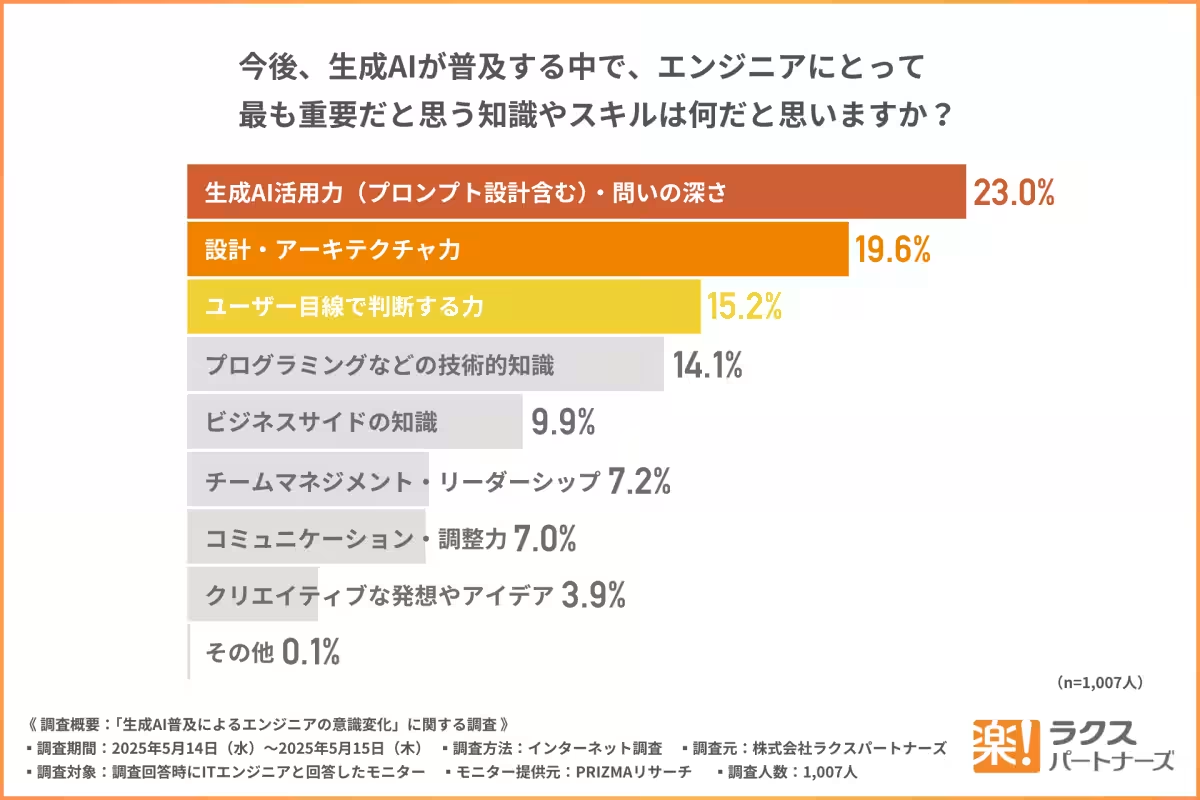

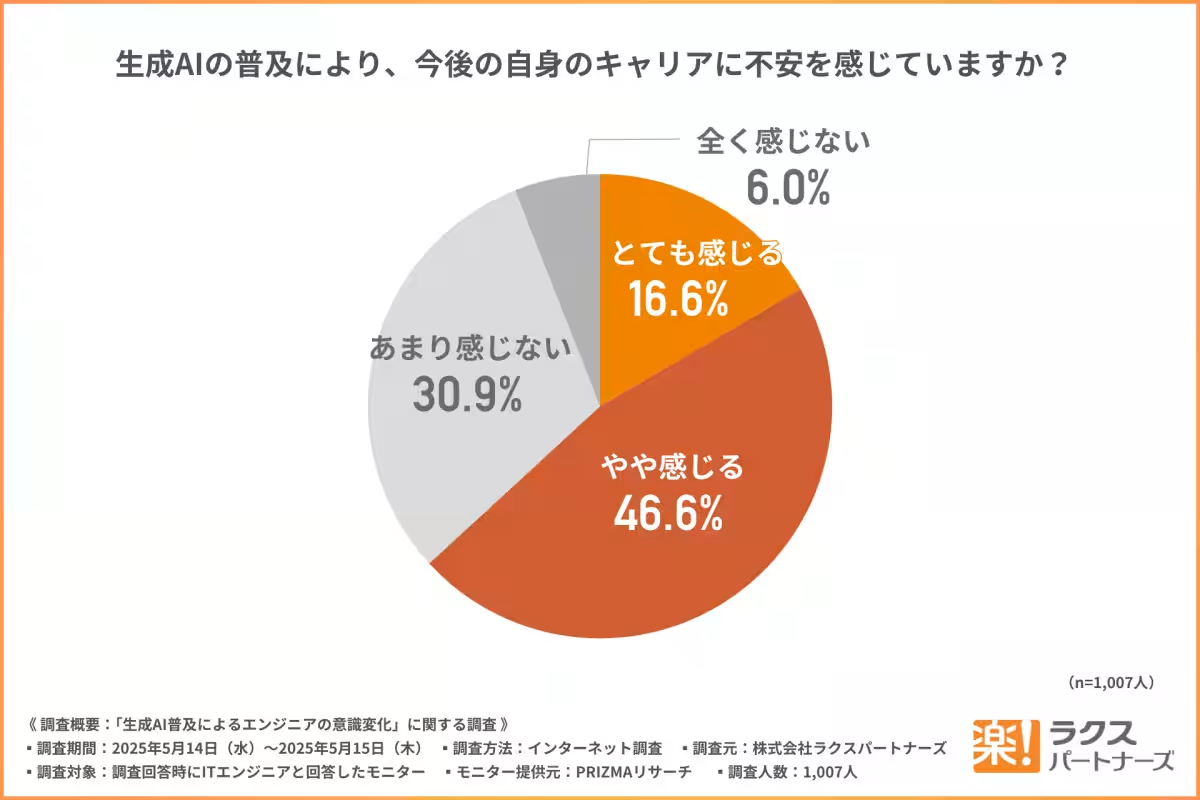
Topics Consumer Technology)










【About Using Articles】
You can freely use the title and article content by linking to the page where the article is posted.
※ Images cannot be used.
【About Links】
Links are free to use.